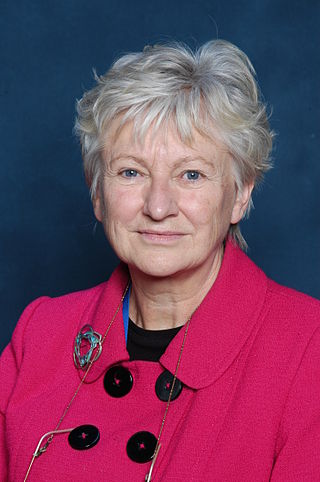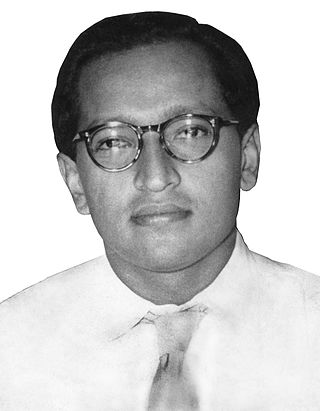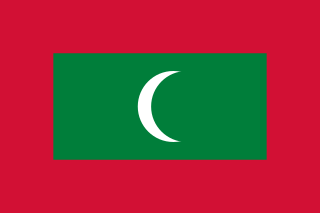
The mixed economy of Sri Lanka was worth $84 billion by nominal gross domestic product (GDP) in 2019 and $296.959 billion by purchasing power parity (PPP). The country had experienced an annual growth of 6.4 percent from 2003 to 2012, well above its regional peers. This growth was driven by the growth of non-tradable sectors, which the World Bank warned to be both unsustainable and unequitable. Growth has slowed since then. In 2019 with an income per capita of 13,620 PPP Dollars or 3,852 (2019) nominal US dollars, Sri Lanka was re-classified as a lower middle income nation with the population around 22 million (2021) by the World Bank from a previous upper middle income status.

The United National Party is a centre-right political party in Sri Lanka. The UNP has served as the country's ruling party, or as part of its governing coalition, for 38 of the country's 74 years of independence, including the periods 1947–1956, 1965–1970, 1977–1994, 2001–2004 and 2015–2019. The party also controlled the executive presidency from its formation in 1978 until 1994 and again from 2022 to 2024.

Sirima Ratwatte Dias Bandaranaike, commonly known as Sirimavo Bandaranaike, was a Sri Lankan politician. She was the world's first female prime minister when she became Prime Minister of Sri Lanka in 1960. She chaired the Sri Lanka Freedom Party (SLFP) from 1960 to 1994 and served three terms as prime minister, two times as the chief executive, from 1960 to 1965 and from 1970 to 1977, and once again in a presidential system from 1994 to 2000, governing under the presidency of her daughter Chandrika Kumaratunga.

Matale is a major city in Central Province, Sri Lanka. It is the administrative capital and largest urbanised city of Matale District. Matale is also the second largest urbanised and populated city in Central Province. It is located at the heart of the Central Highlands of the island and lies in a broad, green fertile valley at an elevation of 364 m (1,194 ft) above sea level. Surrounding the city are the Knuckles Mountain Range, the foothills were called Wiltshire by the British. They have also called this place as Matelle.

The United Socialist Party is a Trotskyist political party in Sri Lanka. The party is led by perennial presidential candidate Siritunga Jayasuriya. It is affiliated with the Committee for a Workers' International.
Senaka Bibile was a Sri Lankan pharmacologist. He was the founder of Sri Lanka's drug policy, which was used as a model for development of policies based on rational pharmaceutical use in other countries as well by the World Health Organization, the United Nations Conference on Trade and Development (UNCTAD) and the Non-Aligned Movement. Due to the far reaching effects of his proposals and policies, he has been called the 'greatest medical benefactor of humanity that Sri Lanka has hitherto produced'.

Oxfam Australia is an Australian, independent, charity, not-for-profit, secular, community-based aid and development organization, and is an affiliate of the Oxfam International Confederation. Oxfam Australia's work is divided into four broad categories covering climate justice, Economic Justice, Gender Justice and First Peoples Justice as well as Humanitarian response. They believe that poverty in the 21st century is less a problem of scarcity but the result of how resources, opportunities, and protections are distributed and wielded.

Sri Lankabhimanya Karu Jayasuriya is a Sri Lankan politician. He was the Speaker of the Parliament of Sri Lanka. Previously he was Mayor of Colombo from 1997 to 1999, Minister of Power and Energy from 2001 to 2004, Minister of Public Administration and Home Affairs from 2007 to 2008, and Minister of Buddha Sasana, Public Administration, and Democratic Governance in 2015. He has served as Chairman of the Leadership Council of the United National Party (UNP), as well as Deputy Leader of the UNP. He is a member of parliament representing the Gampaha District since 2001. He had served as Sri Lanka's Ambassador to (Germany). As Speaker of Parliament, he also acts as Chairman of the Constitutional Council.
Jayasuriya or Jayasooriya is a Sinhalese name. It derives from Sanskrit and consists of two parts: Jaya, which means victory in Sanskrit and Sinhalese, the later half suriya means Sun or the solar deity in Hinduism. The name may refer to the following notable people:
Structuralist economics is an approach to economics that emphasizes the importance of taking into account structural features (typically) when undertaking economic analysis. The approach originated with the work of the Economic Commission for Latin America and is primarily associated with its director Raúl Prebisch and Brazilian economist Celso Furtado. Prebisch began with arguments that economic inequality and distorted development was an inherent structural feature of the global system exchange. As such, early structuralist models emphasised both internal and external disequilibria arising from the productive structure and its interactions with the dependent relationship developing countries had with the developed world. Prebisch himself helped provide the rationale for the idea of import substitution industrialization, in the wake of the Great Depression and World War II. The alleged declining terms of trade of the developing countries, the Singer–Prebisch hypothesis, played a key role in this.

Wijayatunga Mudalige Harischandra Wijayatunga is a Sri Lankan author, translator, lexicographer, teacher, lawyer and politician. He held various offices in different institutions of the Government of Sri Lanka. At present he is the leader of Sinhalaye Mahasammatha Bhoomiputra Party. During the presidential elections of 1994 and 1999, he was the candidate of that party for this high office.

Deforestation is one of the most serious environmental issues in Sri Lanka. Sri Lanka's current forest cover as of 2017 was 29.7%. In the 1920s, the island had a 49 percent forest cover but by 2005 this had fallen by approximately 26 percent. or 24-35%. Between 1990 and 2000, Sri Lanka lost an average of 26,800 ha of forests per year. This amounts to an average annual deforestation rate of 1.14%. Between 2000 and 2005 the rate accelerated to 1.43% per annum. However, with a long history of policy and laws towards environmental protection, deforestation rates of primary cover have decreased 35% since the end of the 1990s thanks to a strong history of conservation measures. The problem of deforestation in Sri Lanka is not as significant in the southern mountainous regions as it is in northern and lowland southern Sri Lanka, largely due to the nature of environmental protection.

Crawford School of Public Policy is a research-intensive policy school within the ANU College of Asia and the Pacific at The Australian National University which focuses on Australia and the Asia-Pacific region. The school was named after Sir John Crawford, and its current director is Professor Helen Sullivan.

The Transnational Government of Tamil Eelam (TGTE) is a transnational organisation among the Sri Lankan Tamil diaspora which aims to establish Tamil Eelam, a secular and democratic socialist state which many Tamils aimed to create in the North-East of Sri Lanka.

Angela W. Little is Professor Emerita at the Institute of Education, University of London. She is known for her work in primary education policy and practice in developing countries as well as education planning, program evaluation and assessment. In particular she has focussed in seven main areas:

Deshamanya Jayantha Kelegama (1928–2005) was a Sri Lankan economist and civil servant. He belongs to the first generation of economists in the post-independent Sri Lanka.

The Maldivian diaspora refers to the community of Maldivians, speakers of the Maldivian language, who have either emigrated from the Republic of Maldives or grew up outside of the Maldives speaking Dhivehi as a first language. The Republic of Maldives is a South Asian country geographically located in the Indian Ocean, Laccadive Sea and Arabian Sea. Maldivians have historically emigrated from the Maldives for numerous reasons including low economic opportunity, political repression and education. India and Sri Lanka currently host the most Maldivians living outside of the Maldives, but other diaspora communities can be found in Malaysia, Singapore, Pakistan, and Australia.
P. Nandalal Weerasinghe is a Sri Lankan economist and banker who is also currently serving as the 17th Governor of the Central Bank of Sri Lanka. A career officer in the Central Bank of Sri Lanka, serving as its chief economist and senior deputy governor. He has also served as an alternative executive director at the International Monetary Fund in Washington DC representing the countries such as Sri Lanka, Bhutan, India and Bangladesh from January 2010 to August 2012. He has also previously acted as a chairman of the monetary policy committee and foreign reserve management committee of the Central Bank of Sri Lanka.
Raghbendra Jha was an Indian economist and an academic who was a professor emeritus in the Arndt-Corden Department of Economics at the Crawford School of Public Policy at Australian National University. Jha's research focused on public economics, macroeconomics, development economics, and the economy of India. He has authored and edited numerous books, including Macroeconomics for Developing Countries, Modern Public Economics, Facets of India’s Economy and Her Society, Environmental Sustainability: A Consumption Approach, and Macroeconomics for Development: Prognosis and Prospects and several others.













